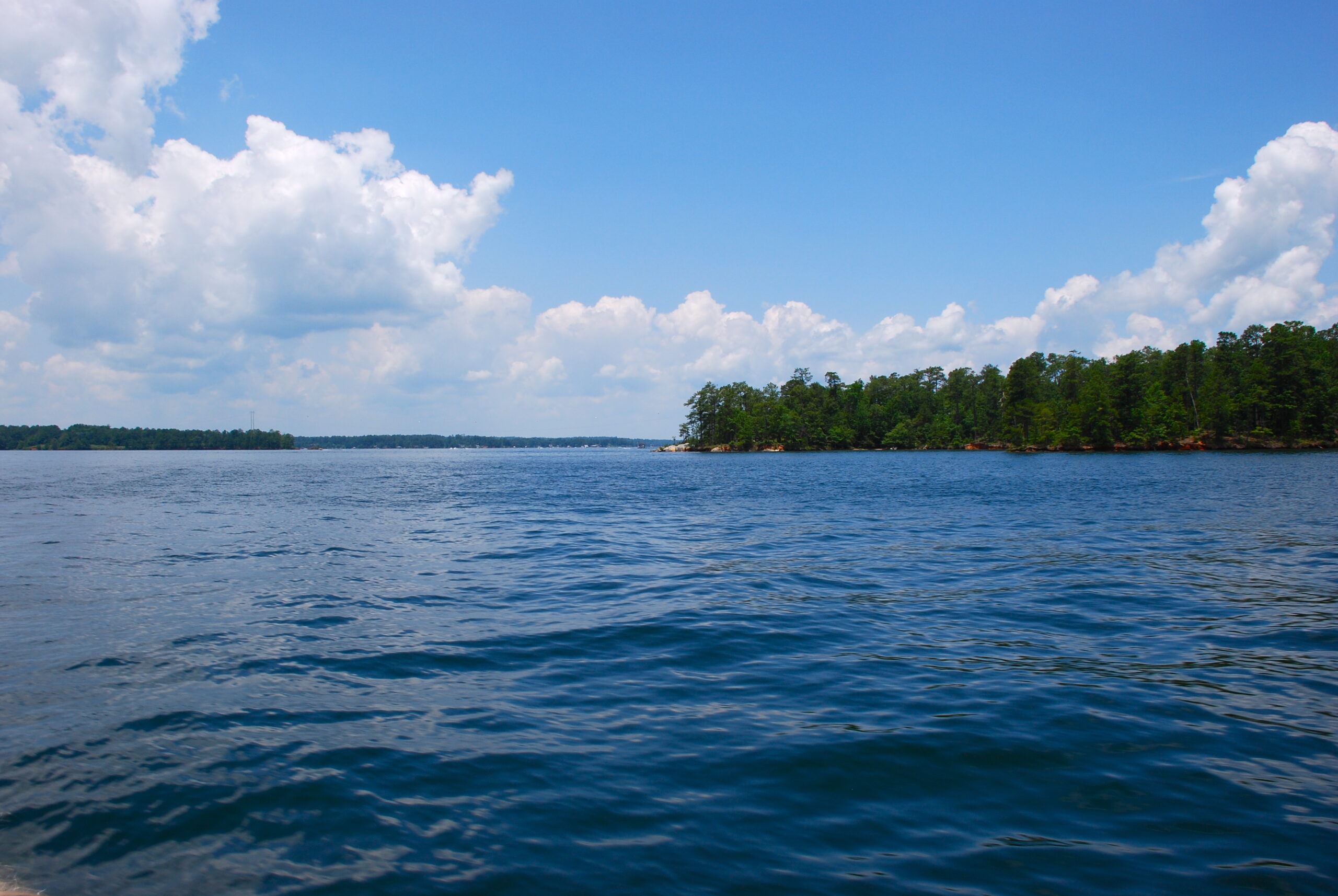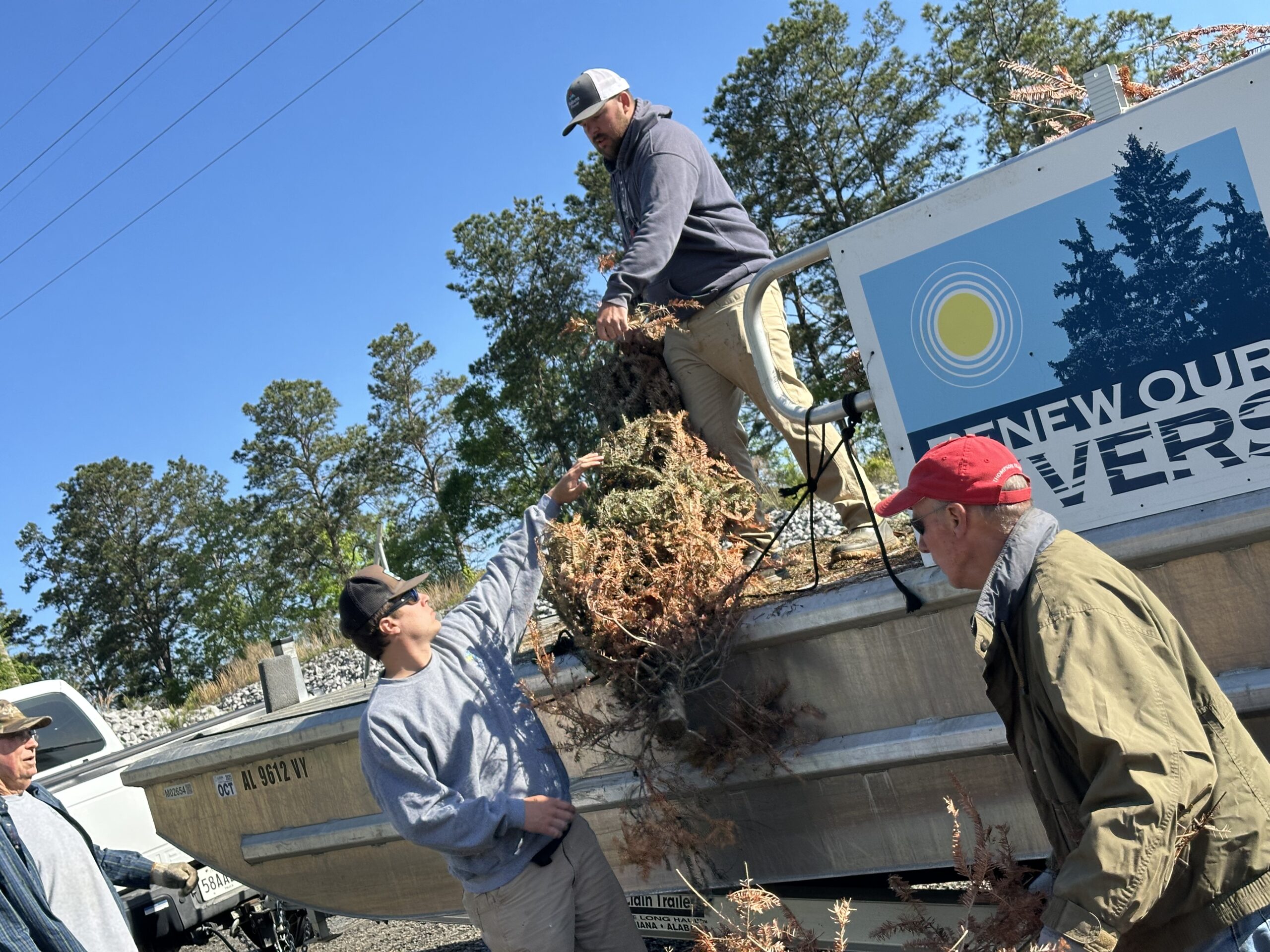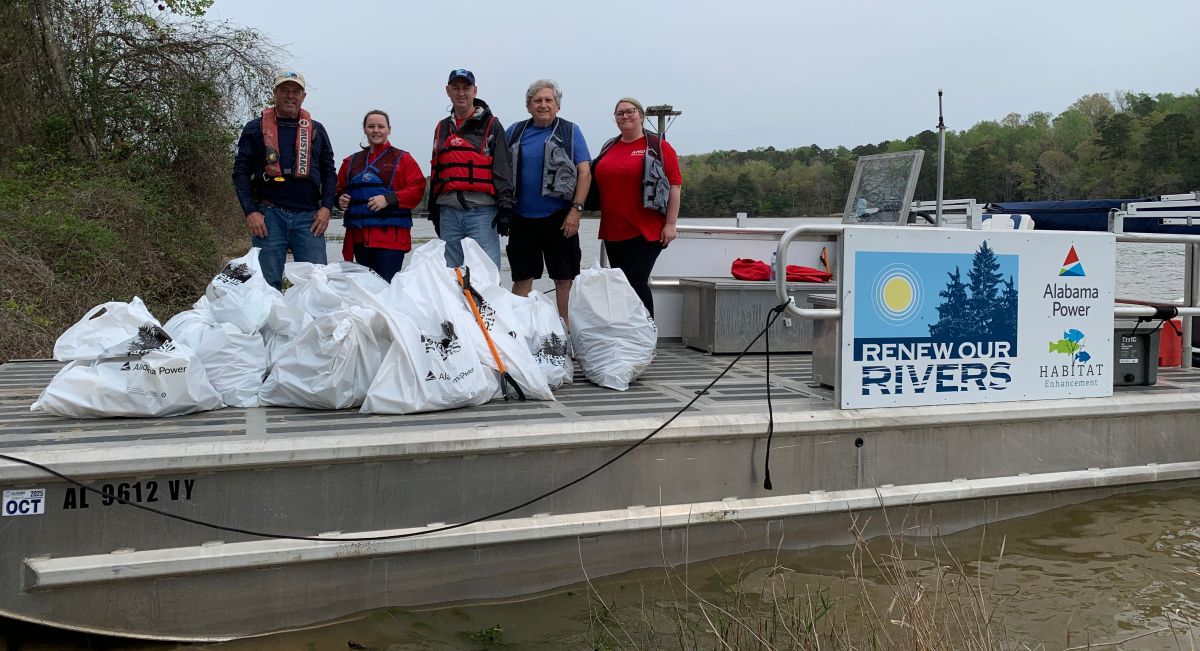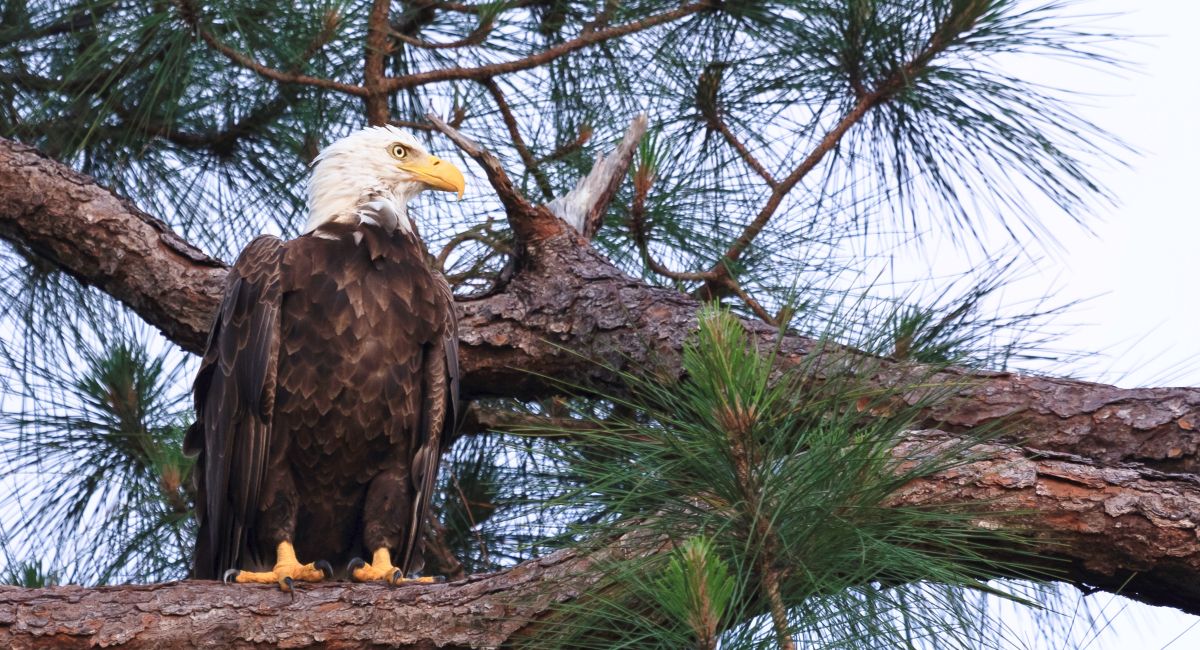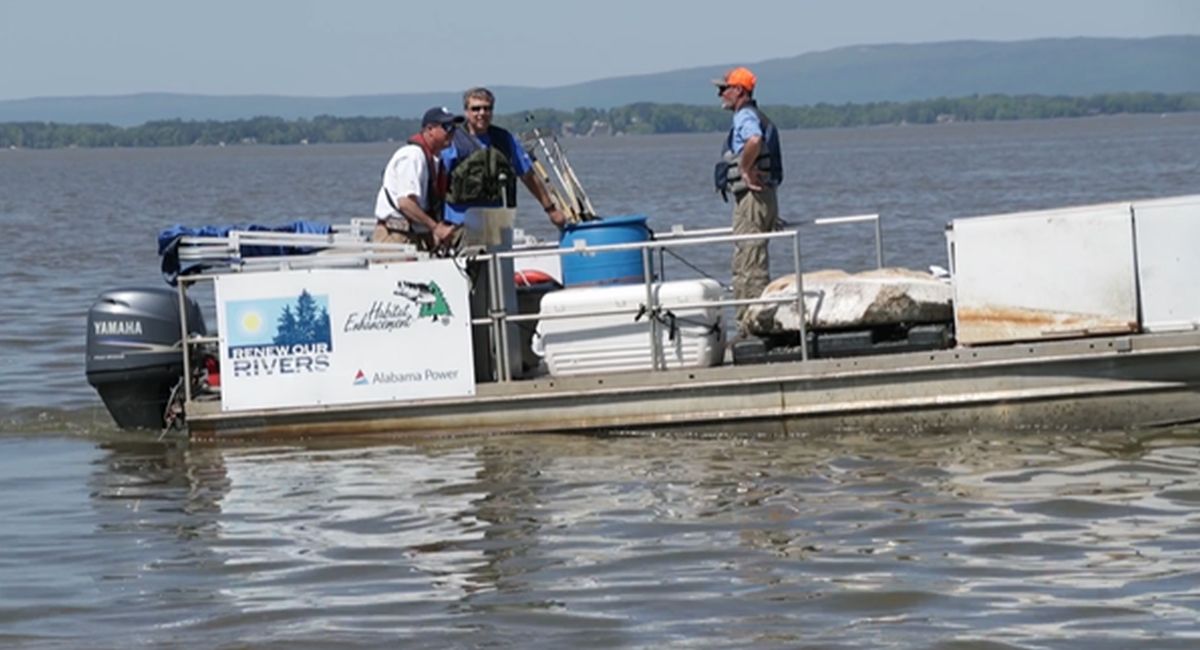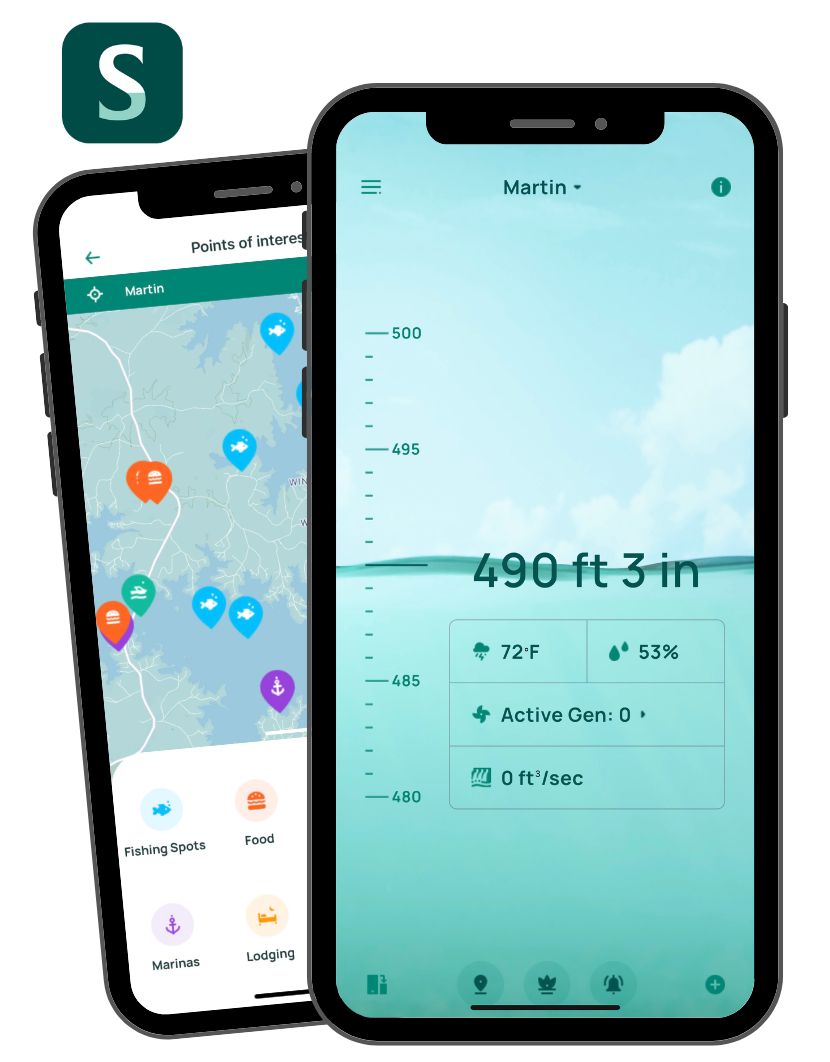Hayden High School’s fishing team members can often be found casting a line on lakes and rivers across Alabama.
However, earlier this month, the 2011-2014 state champs, along with anglers from Vinemont High, were on Smith Lake not looking for their next big catch but instead working to improve fish habitat.
On July 3, the teams partnered with members of Alabama Power Environmental Affairs and the Alabama Department of Conservation and Natural Resources (ADCNR) to plant water willow and buttonbush, both native aquatic plants.
Alabama Power started its water willow relocation program in 2015, moving plants from areas with high density to places where they are less common.
Alongside Alabama Power and ADCNR biologists, the students spread out plants from Lay Lake over the water before sinking them using cinderblocks and small-gauge wire. The group worked from four boats that launched at Smith Lake Park.
If the relocation succeeds, the plants will root on the lakebed and grow up to the surface, stabilizing shoreline, providing spawning sites for fish and habitat for other aquatic animals.
Hayden High coach Casey Shelton said it’s important to teach young anglers more than just how to fish. Shelton, a former Alabama Power lineman, is business manager of the International Brotherhood of Electric Workers System Council U-19.
“Every kid is not a football, basketball or baseball star. The fishing team is a great place for a lot of kids who love the outdoors, but we do more than fish,” Shelton said. “It’s also about conservation, the environment and the stuff we have done today.”
In addition to helping with the plant relocation, APC biologist Josh Yerby taught students about the differences between native and non-native plants and why aquatic plant management matters.
If not properly managed, aquatic plants can threaten public health by creating mosquito breeding habitats. They also can limit access to and recreational use of the lake, Yerby said. He said unmanaged plant growth can affect the operation of the company’s hydroelectric dams.
“The Federal Energy Regulatory Commission (FERC), which licenses hydroelectric projects, requires the company to manage aquatic vegetation on its lakes,” Yerby said.
While APC frequently partners with state and federal agencies on fish habitat projects, the company also involves students, especially high school fishing teams. In addition to Hayden and Vinemont, teams from Auburn, Beauregard and Beulah have assisted with relocation projects in recent years.
“It’s great that they can take some ownership of this and know these plants are here because they volunteered their time,” Yerby said. “In 15 years, these students can come back with their own kids and, hopefully, these plants will still be here.”
The 33-member Hayden team’s “season” runs almost yearlong but is busiest in the fall and winter. In the summer, the team completes a conservation project. The members also help with events in their own communities, while learning about leadership and teamwork.
“Today, we learned a lot about what the environmental guys do and the lake, how it’s more than just for recreational use,” said Tanner Shelton, a junior at Hayden and Casey’s son. “The fishing team is a great team. We do a lot more than just fishing, like coming up here today and helping with these plants. We have a lot of fun too.”
In addition to helping with plant relocation, the team members removed any trash they saw while out on the water.
“We collected all the cans and bottles we saw and took that out of the water,” said Logan Lolley, a senior at Hayden. “I’ve done something similar to this (plant relocation) in the past, but it’s good to refresh your memory. This is my fifth and final year. The fishing team has been really good — I’ve made a lot of friends and learned a lot, more life lessons than anything.”
Casey Shelton believes the team provides motivation for students to do their best in school and stay out of trouble.
“All these kids love to fish, and they are going to keep those grades up so they can fish,” he said.
A representative from Bass Anglers Sportsman Society (B.A.S.S.) covered the relocation for bassmaster.com.
“Alabama Power has one of the best fish habitat enhancement records of any electric utility in the country,” Gene Gilliland, B.A.S.S. national conservation director, told the website. “Their programs that involve the Alabama B.A.S.S. national high school and college anglers in conservation projects is one we hope other lake authorities will want to copy.”
The full story from Bassmaster can be found at this link: https://m.bassmaster.com/conservation-news/alabama-power-company-educates-and-adds-aquatic-plants
Alabama Power does not encourage independent plant relocation efforts that could spread non-native species. There are also state and federal laws prohibiting transport of invasive species.
Information on aquatic plants and fishing spots on APC reservoirs can be found online at apcshorelines.com.


